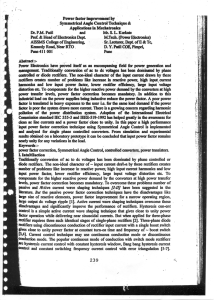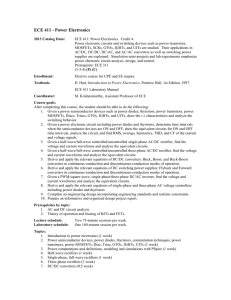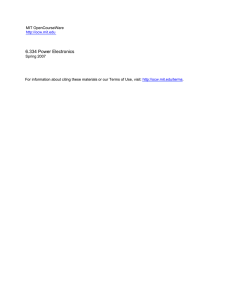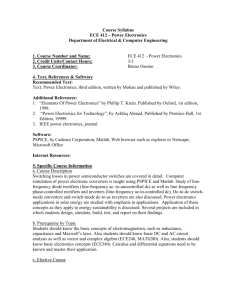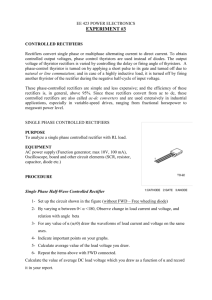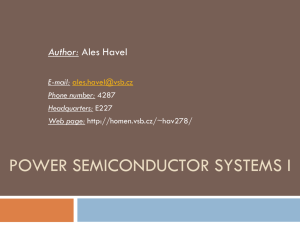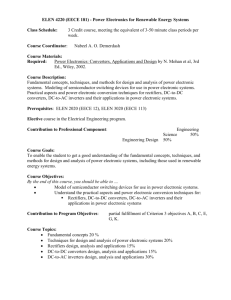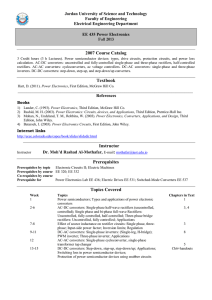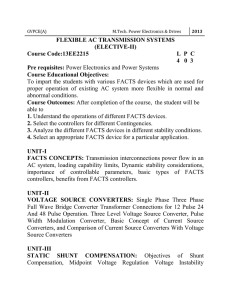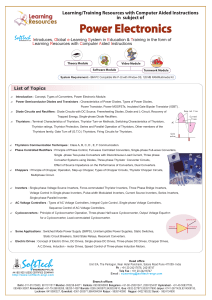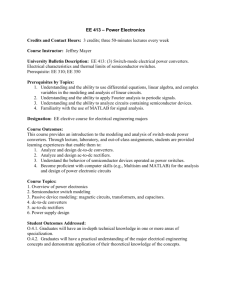The Problems for Examination on Power
advertisement
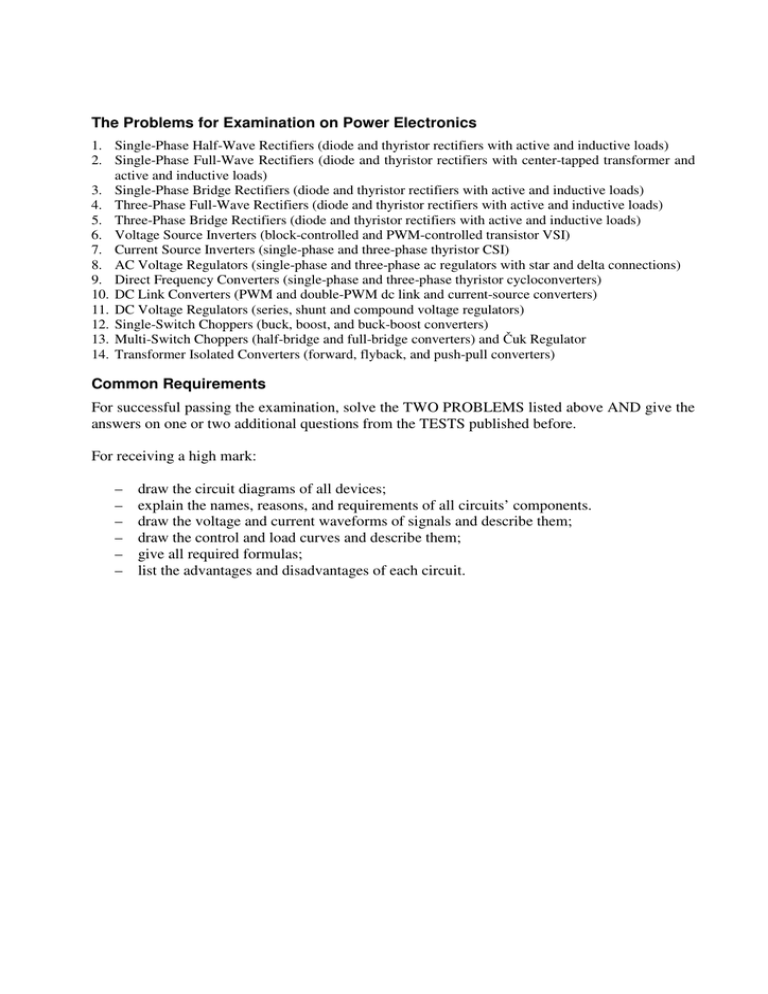
The Problems for Examination on Power Electronics 1. Single-Phase Half-Wave Rectifiers (diode and thyristor rectifiers with active and inductive loads) 2. Single-Phase Full-Wave Rectifiers (diode and thyristor rectifiers with center-tapped transformer and active and inductive loads) 3. Single-Phase Bridge Rectifiers (diode and thyristor rectifiers with active and inductive loads) 4. Three-Phase Full-Wave Rectifiers (diode and thyristor rectifiers with active and inductive loads) 5. Three-Phase Bridge Rectifiers (diode and thyristor rectifiers with active and inductive loads) 6. Voltage Source Inverters (block-controlled and PWM-controlled transistor VSI) 7. Current Source Inverters (single-phase and three-phase thyristor CSI) 8. AC Voltage Regulators (single-phase and three-phase ac regulators with star and delta connections) 9. Direct Frequency Converters (single-phase and three-phase thyristor cycloconverters) 10. DC Link Converters (PWM and double-PWM dc link and current-source converters) 11. DC Voltage Regulators (series, shunt and compound voltage regulators) 12. Single-Switch Choppers (buck, boost, and buck-boost converters) 13. Multi-Switch Choppers (half-bridge and full-bridge converters) and Čuk Regulator 14. Transformer Isolated Converters (forward, flyback, and push-pull converters) Common Requirements For successful passing the examination, solve the TWO PROBLEMS listed above AND give the answers on one or two additional questions from the TESTS published before. For receiving a high mark: – – – – – – draw the circuit diagrams of all devices; explain the names, reasons, and requirements of all circuits’ components. draw the voltage and current waveforms of signals and describe them; draw the control and load curves and describe them; give all required formulas; list the advantages and disadvantages of each circuit.
